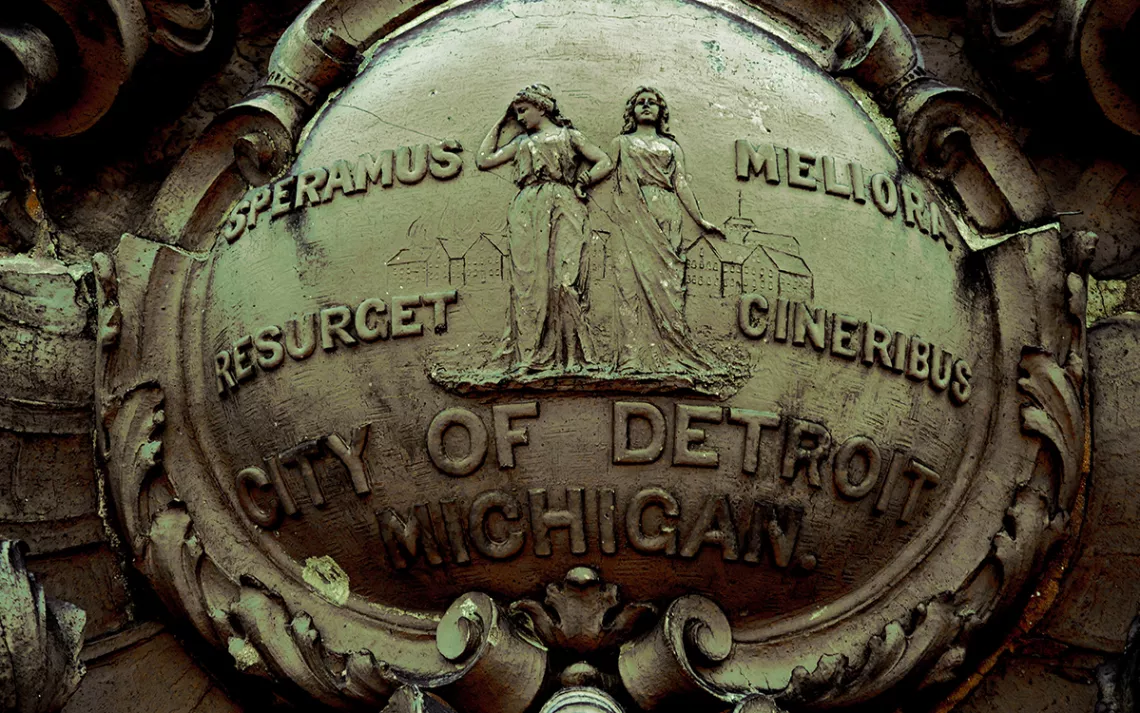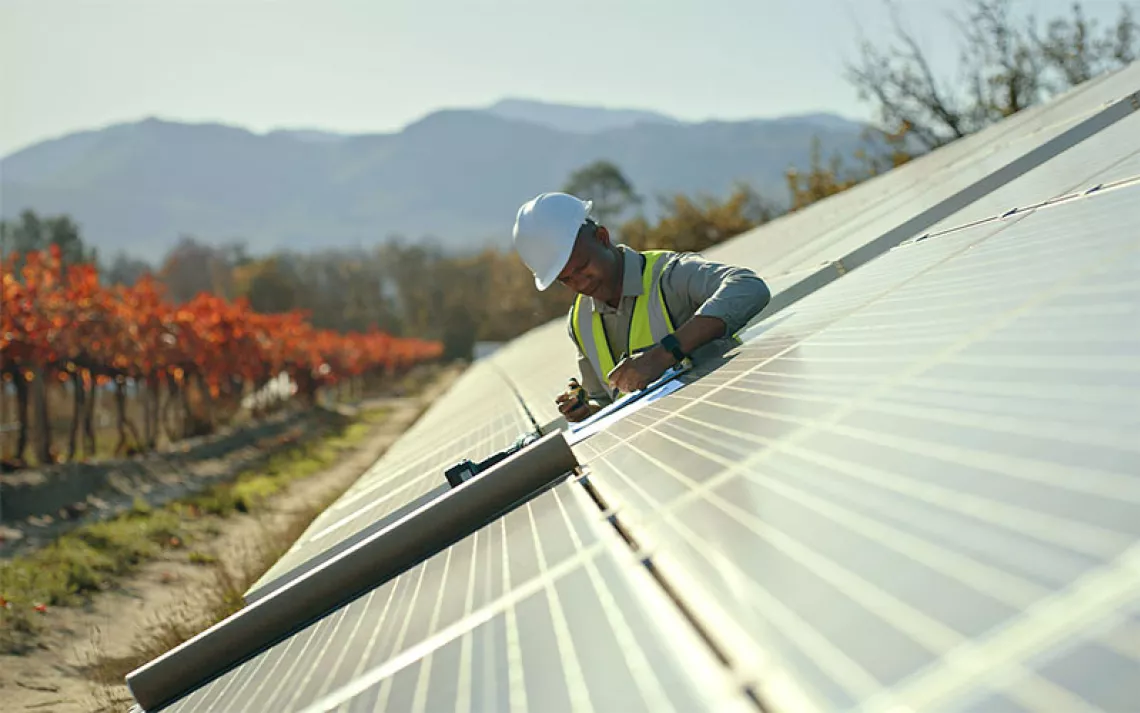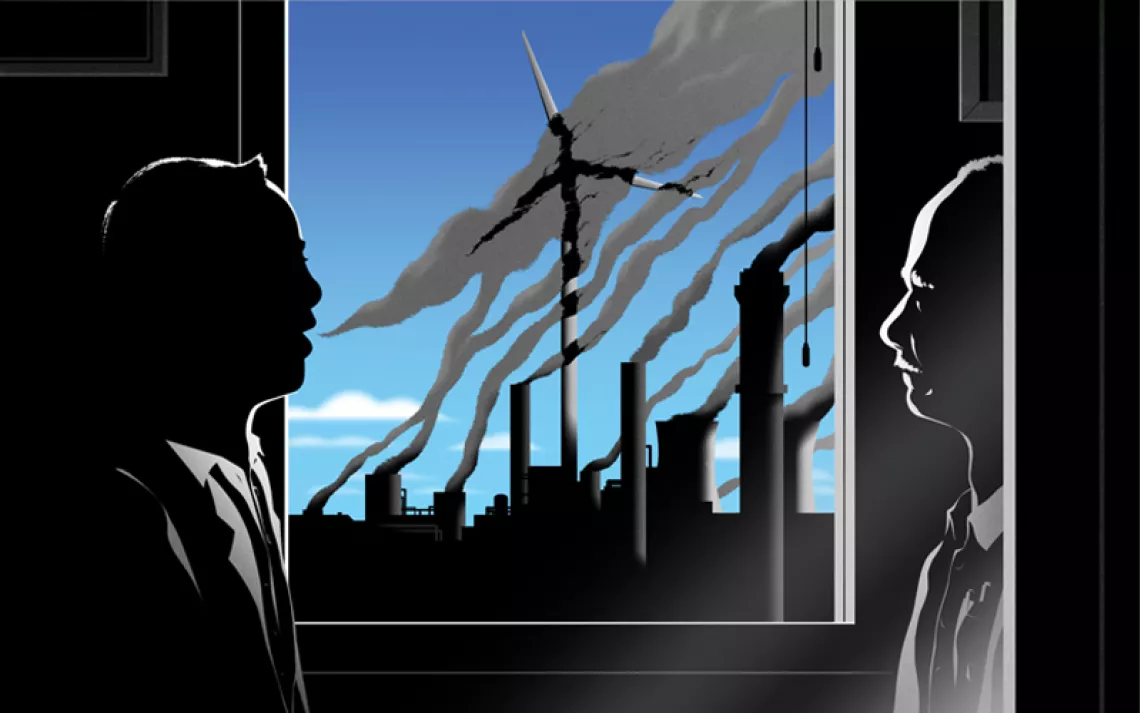A Pilot Program in Detroit Is a Step Toward Energy Justice
A Michigan utility offers energy efficiency retrofits for low-income families

Detroit’s motto is “Speramus Meliora; Resurget Cineribus”: “We hope for better things; it will rise from the ashes.” | Photo by TracieMichelle
In March, the Sierra Club, the Natural Resources Defense Council, and Earthjustice reached an agreement with Michigan’s largest electricity and gas utility, DTE Energy, to help reduce energy costs for low-income residents in Detroit who struggle to pay for service. The utility will install residential retrofits—including new refrigerators, water heaters, windows, or insulation—for the 500 customers with the highest backlog of unpaid bills. DTE, which has pledged to be carbon neutral by 2050, will increase its budget for low-income programs by $10 million to implement the initiative.
The settlement was announced just as the coronavirus began to sweep the country. The pandemic has only highlighted the injustice of shutting off utilities—which are necessary for sheltering in place and for maintaining public health—when residents can’t afford to pay their bills. Several cities and states have pledged to suspend electricity and water shut-offs during the health crisis, but in Detroit, a number of residents are still fighting to get their water turned back on.
Low-income households across the US struggle with a disproportionately high energy burden (the percentage of household income that goes toward energy costs). On average, it is three times higher for them than for their wealthier counterparts, according to a 2016 report by the American Council for an Energy Efficient Economy (ACEEE). In Detroit, 25 percent of low-income households spend about 15 percent of their income on energy, which is more than four times the city median.
Home energy retrofits help reduce this energy burden, but the up-front costs can be out of reach for low-income families who are already forced to make hard choices about which bills to pay. “No one wants to have to make decisions about whether they pay their light bill or buy groceries,” says Sharonda Williams-Tack, the Sierra Club’s associate director of environmental justice and community partnerships. Customers with unpaid bills are considered “in arrears,” and while some utilities have payment programs to help customers manage their bills, many households simply get disconnected. According to the NAACP, this can leave residents vulnerable to the effects of extreme weather and force them to resort to unsafe heating and lighting methods like space heaters and candles.
The federal government sets aside some money to address the problem, but it doesn’t go very far. The Low Income Home Energy Assistance Program (LIHEAP) only has enough money to provide emergency assistance and weatherization to about 20 percent of eligible households.
To customers with unpaid bills, the promise of lower energy costs can sound like a scam, so DTE plans to tap trusted community organizations to establish communication with customers and schedule energy audits. Afterward, the utility or one of its contractors will return to install the appropriate efficiency measures. “It's such an improvement to have the company directly following up versus just leaving the customer with suggestions or providing rebates,” says Elena Saxonhouse, a senior attorney with the Sierra Club.
Advocates hope the pilot program will serve as a model that can be replicated elsewhere. One state that has scaled up this type of aid is Vermont, which is home to some towns with energy burdens as high as 20 percent. Funded by an energy efficiency charge that appears on all electric bills, the state’s program offers reduced utility rates, forgiveness of arrears, and free energy efficiency products to low-income households. State lawmakers are working to expand the program to include transportation and heating.
Skyrocketing unemployment rates in the midst of the COVID-19 pandemic have only made it harder for low-income residents everywhere to pay for household expenses. "Now more than ever, we need to hold utilities accountable to their ratepayers so that your energy needs aren't a burden but something you are able to financially manage while dealing with all of the other responsibilities in life, regardless of whether a crisis is occurring," Williams-Tack says.
This article has been updated since publication.
 The Magazine of The Sierra Club
The Magazine of The Sierra Club



